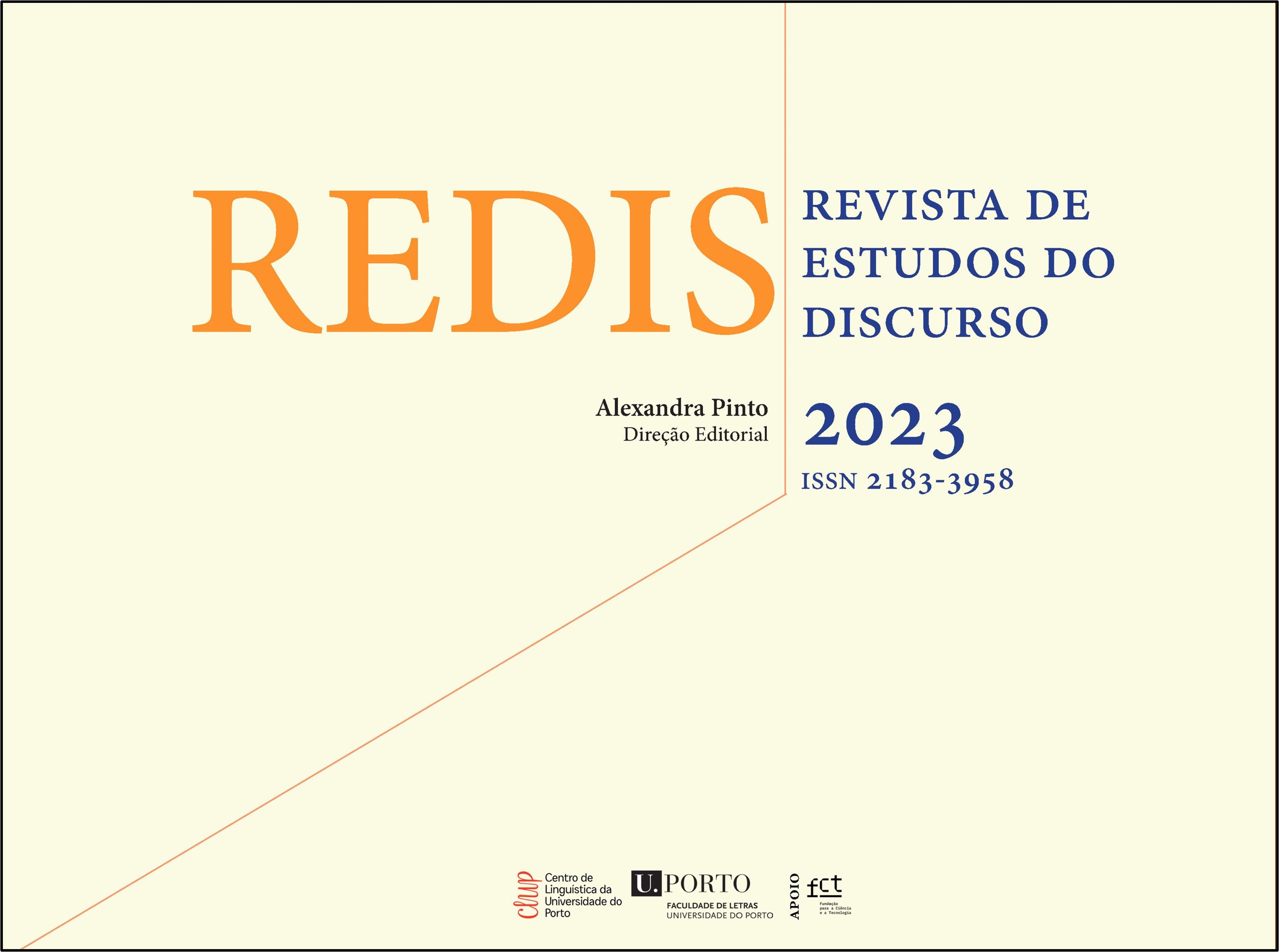Discursive representation and argumentative orientation in utterances uttered in a situation of controversial discourse modality: the images of machismo and misogyny
DOI:
https://doi.org/10.21747/21833958/red13a3Keywords:
Combating sexism and misogyny, Argumentation, DiscourseAbstract
Assuming that all discourse is ideological and marked by argumentation, this study aims to analyze the manifestations of machismo and misogyny in utterances involving a controversy stemming from a statement made by the Brazilian singer Zé Neto. On May 12, 2022, during a concert in the city of Sorriso, in the Brazilian state of Mato Grosso, the singer, part of the sertanejo duo with Cristiano, delivered a speech in support of the then-president of Brazil, Jair Bolsonaro, and against the Rouanet Law. From his speech, we highlight the following excerpt: "We don't need to tattoo our 'toba' to show whether we're doing well or not; we simply come here and sing." This directly references a tattoo that the Brazilian singer Anitta has on her body. This episode triggered a discussion on social media characterized by misogynistic statements, which is the focus of our analysis. From a theoretical perspective, our study is primarily grounded in the works of Amossy (2017, 2018, 2020), Cavalcante et al (2020), Adam (2011), and Chapanski (2020). The results indicate a persistently prevalent discourse of sexism and misogyny, which must be addressed, along with any form of hate speech, as it places women in a situation of severe social vulnerability.
References
ADAM, J-M. (2011) A linguística textual: uma introdução à análise textual dos discursos. 2. ed. revista e aumentada. São Paulo: Cortez.
AMOSSY, R. (2017) Apologia da polêmica. São Paulo: Contexto.
AMOSSY, R. (2018) A argumentação no discurso. São Paulo: Contexto.
AMOSSY, R. (2020) A dimensão argumentativa do discurso: questões teóricas e práticas. In:
CAVALCANTE, M. M.; BRITO, M. (Org.). Texto, discurso e argumentação. Campinas-SP: Pontes editores.
AQUINO, L. D.; GOMES, A. T. (2021) Representações discursivas de Lula: uma análise da referenciação no texto das capas da revista Época. In: Revista (Con)Textos Linguísticos, Vitória, v. 15, n. 31, p. 211-230.
CAVALCANTE, M. M. et al. (2020) Linguística textual e argumentação. Campinas-SP: Ponte editores.
CHAPANSKI, G. (2020) Crimes com palavras: um olhar da linguística forense sobre o discurso de ódio no contexto brasileiro. IN: TULLIO, C. M.; GAVIOLI-PRESTES, C. M. (Org.). Linguística forense: reflexões e debates [livro eletrônico]. Ponta Grossa: Texto e Contexto. (Coleção Singularis, v.3).
KERBRAT-ORECCHIONI, C. (1980) La polémique et ses definitions. In: GELAS, N; KERBRAT-ORECCHIONI, C. (eds.) Le discours polemique. Lyon: Presses Universitaires de Lyon, 1980, pp. 3-40.
KOCH, I. G. V. (2009) Introdução à linguística textual: trajetória e grandes temas. 2. ed. São Paulo: Martins Fontes.
MEYER-PFLUG, S. R. (2009) Liberdade de expressão e discurso do ódio: racismo, discriminaçã o, preconceito, pornografia, financiamento público das atividades artísticas e das campanhas eleitorais. São Paulo: Revista dos Tribunais.
RABATEL, A. (2008) Homo narrans: pour une analyse énonciative et interactionnelle du récit: les points de vue et la logique de la narrations. Limoges: Lambert-Lucas.
RABATEL, A. (2016) Homo narrans: por uma abordagem enunciativa e interacionista da narrativa: pontos de vista e lógica da narração - teoria e análise. Tradução - Maria das Graças Soares Rodrigues, Luis Passeggi, João Gomes da Silva Neto. Revisão técnica - João Gomes da Silva Neto. São Paulo: Editora Cortez.
RODRIGUES, M. G. S.; PASSEGGI, L.; SILVA NETO, J. G. (2010) “Voltarei. O povo me absolverá...”: a construção de um discurso político de renúncia. In: ADAM, J.-M. et al. Análises textuais e discursivas: metodologia e aplicações. São Paulo: Cortez, p. 150-195.
Downloads
Published
How to Cite
Issue
Section
License
Copyright (c) 2023 Alexandro Teixeira Gomes

This work is licensed under a Creative Commons Attribution 4.0 International License.
The authors give to REDIS. Revista de Estudos do Discurso the exclusive right to publish its texts, in any medium, including their reproduction and sale in paper or digital format, as well as their availability in a free access regime in databases.
















